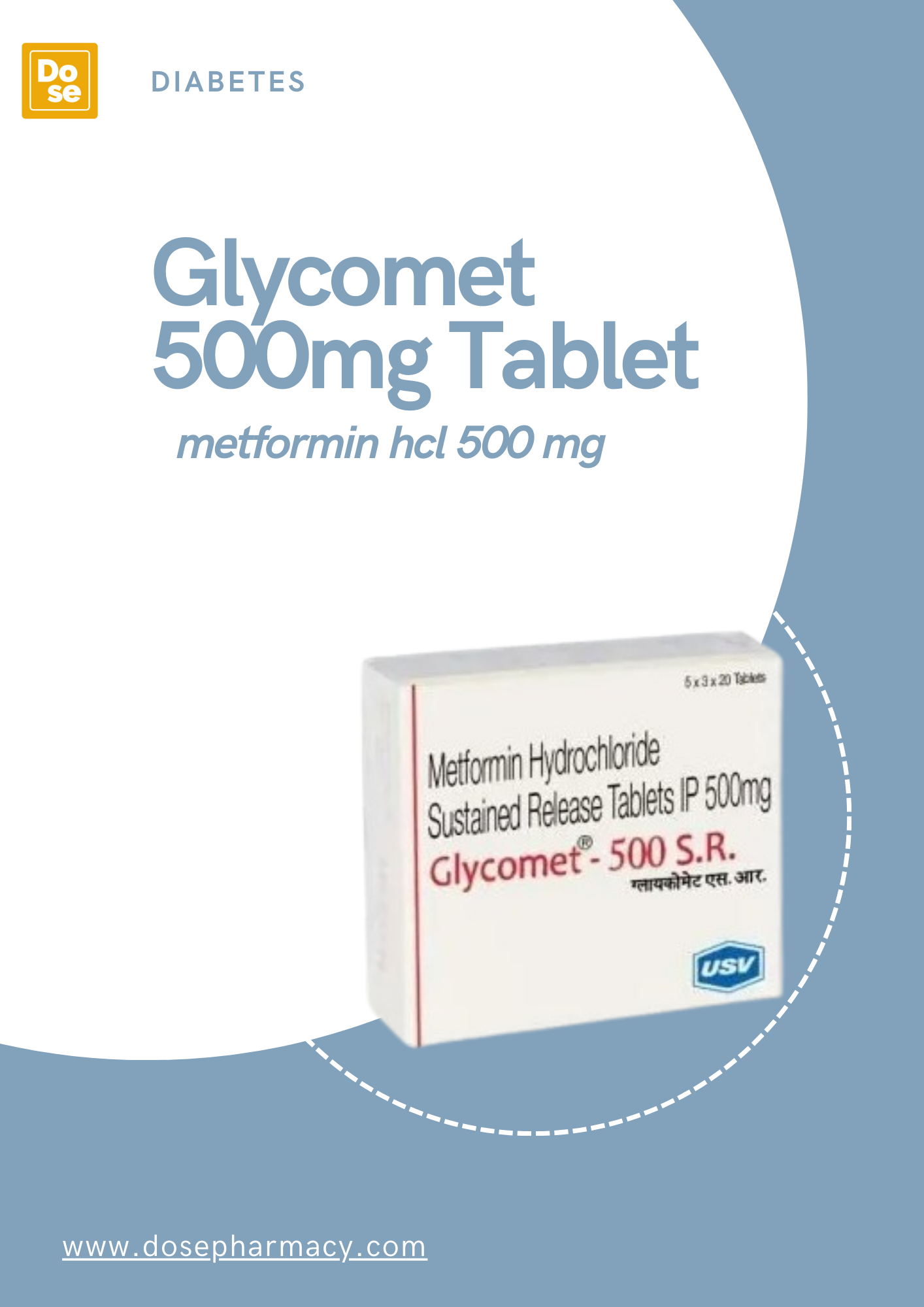Subtotal $0.00
Metformin hcl 500 mg is a widely used medication for managing type 2 diabetes. Originally derived from the French lilac plant, it has been in use for decades and is considered a first-line treatment for this condition. Beyond its role in diabetes management, recent research has explored its potential benefits in various health conditions, as well as the associated risks and alternatives available. This article will delve into the health benefits of metformin HCL, the risks involved, and possible alternatives.
Understanding Metformin HCL
Metformin works primarily by improving insulin sensitivity and decreasing hepatic glucose production, thereby lowering blood sugar levels. It is usually prescribed as an oral medication and is available in immediate-release and extended-release formulations. Metformin is most commonly used in conjunction with lifestyle changes, such as diet and exercise, to achieve optimal blood sugar control.
Health Benefits of Metformin HCL
1. Effective Blood Sugar Control
One of the most significant benefits of metformin is its ability to effectively control blood glucose levels in individuals with type 2 diabetes. It helps to lower hemoglobin A1c levels, providing a more stable glucose profile. This reduction can significantly decrease the risk of diabetes-related complications, such as neuropathy, nephropathy, and retinopathy.
2. Weight Management
Metformin is known to help with weight loss or maintenance, making it particularly beneficial for overweight or obese individuals with type 2 diabetes. Unlike some other diabetes medications that may lead to weight gain, metformin often promotes a modest weight loss. This effect is attributed to improved insulin sensitivity and reduced appetite.
3. Cardiovascular Benefits
Research suggests that metformin may have cardiovascular protective effects. Studies have shown that it can reduce the risk of heart disease in people with type 2 diabetes. By improving lipid profiles, lowering blood pressure, and reducing inflammation, metformin contributes to better overall heart health.
4. Potential Anti-Aging Effects
Recent studies have explored the possibility of metformin having anti-aging effects. Research indicates that it may improve cellular health by activating the AMP-activated protein kinase (AMPK) pathway, which is associated with longevity. While more research is needed, these findings suggest that metformin may offer benefits beyond diabetes management.
5. Polycystic Ovary Syndrome (PCOS)
Metformin Hydrochloride 500 mg is also used off-label to treat women with polycystic ovary syndrome (PCOS). It can help regulate menstrual cycles, improve ovulation, and reduce insulin resistance, which is common in women with PCOS. This can lead to improved fertility and overall reproductive health.
6. Cancer Prevention
Some studies have indicated that metformin may have a protective effect against certain types of cancer, particularly breast, colon, and prostate cancers. While the evidence is still emerging, its potential role in cancer prevention is an exciting area of research.
Risks and Side Effects of Metformin HCL
While metformin is generally well-tolerated, it is not without risks and side effects. Understanding these potential issues is essential for individuals considering this medication.
1. Gastrointestinal Issues
One of the most common side effects of metformin is gastrointestinal discomfort, including nausea, diarrhea, and abdominal cramping. These symptoms are usually mild and often improve with continued use or by starting with a low dose and gradually increasing it.
2. Lactic Acidosis
Though rare, lactic acidosis is a serious condition that can occur with metformin use. It is characterized by the buildup of lactic acid in the bloodstream, which can be life-threatening. Individuals with kidney impairment, severe liver disease, or heart failure are at higher risk for this complication. Regular kidney function monitoring is essential for patients taking metformin.
3. Vitamin B12 Deficiency
Long-term use of metformin may lead to vitamin B12 deficiency, which can result in neuropathy and anemia. Regular monitoring of vitamin B12 levels is recommended for individuals on metformin, and supplementation may be necessary if deficiency is detected.
4. Hypoglycemia
While metformin alone rarely causes hypoglycemia (low blood sugar), it can occur if used in combination with other diabetes medications, particularly insulin or sulfonylureas. Patients should be educated about the signs and symptoms of hypoglycemia and how to manage it.
Alternatives to Metformin HCL
For individuals who cannot tolerate metformin or prefer alternative treatments, several options are available for managing type 2 diabetes and related conditions.
1. Other Oral Medications
- Sulfonylureas: These medications stimulate the pancreas to release more insulin, helping lower blood sugar levels. Examples include glipizide and glyburide.
- DPP-4 Inhibitors: These drugs work by increasing incretin levels, which help regulate blood sugar levels. Sitagliptin and saxagliptin are common examples.
- SGLT2 Inhibitors: These medications, such as canagliflozin and empagliflozin, prevent glucose reabsorption in the kidneys, promoting glucose excretion in urine.
2. Insulin Therapy
For some individuals with type 2 diabetes, insulin therapy may be necessary. Insulin can be administered in various forms, including long-acting, short-acting, or rapid-acting formulations. This treatment is often considered when oral medications are not effective enough to control blood sugar levels.
3. Lifestyle Changes
Lifestyle modifications remain a cornerstone of diabetes management. Regular physical activity, a balanced diet rich in whole grains, fruits, vegetables, lean proteins, and healthy fats can significantly improve blood sugar control. Weight loss, if applicable, can also enhance insulin sensitivity and overall health.
4. Natural Remedies
Some people explore natural remedies, such as herbal supplements or dietary changes, to manage blood sugar levels. While research on their effectiveness varies, options like cinnamon, berberine, and alpha-lipoic acid may show promise. However, individuals should consult healthcare professionals before trying these alternatives.
Conclusion
Metformin HCL is a cornerstone in the management of type 2 diabetes, offering numerous health benefits, including effective blood sugar control, weight management, and potential cardiovascular protection. However, it is essential to consider the risks associated with its use, such as gastrointestinal issues and the rare but serious condition of lactic acidosis.
For individuals unable to tolerate metformin or seeking alternatives, various medications and lifestyle changes are available to manage diabetes effectively. As with any medical treatment, consulting a healthcare professional is crucial for determining the best approach based on individual needs and health conditions.
Ultimately, whether opting for metformin or exploring alternative therapies, the goal remains the same: achieving optimal health and well-being in the face of diabetes and related complications.










